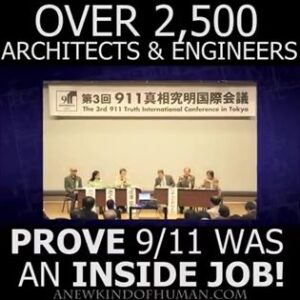What God Wants

Jesus Christ is supposed to create Heaven on Earth when He returns to Earth. After long-term scientific work, I concluded that equal human rights would bring Paradise to Earth. If I’m right, does that mean I could be Jesus Christ?
God created a wonderful world
Something has created the nature in which we live. Nature is complex, functional, rational, beautiful and harmonious. If one pays attention to any part of nature, one may notice perfectionism in the logic of its creation. I doubt it could have been developed without help from a tremendous intelligent power. I have accepted the name of this power is God. I doubt God has control everywhere in nature; instead, I believe God has created a super algorithm capable of bringing the best possible results in generating forms and relations of nature. For example, if people discover that it would be better to jump instead of walk, God’s algorithm might build them wings in a few million years. We, the people, have to learn from nature to understand God.
The origin of religions
Some individuals have claimed they received messages from God and passed on his will to the people. This was the origin of all religions. Religions contain ancient wisdom that brings good to people, which is why we can say that they carry the will of God. The Bible has presented wise and beautiful words of God. The following verses from the Bible confirm that God wants people to create a good society:
Psalm (89:14) ‘Righteousness and justice are the foundation of your throne; steadfast love and faithfulness go before you.’
Amos (5:7,15) ‘Ah, you that turn justice to wormwood, and bring righteousness to the ground! …Hate evil and love good and establish justice in the gate.’
Galatians (5:22-23) ‘The Spirit’s role in a person’s life is to perfect the person’s character, to make him like God. Its fruits, being shown in human behaviour, are the divine attributes of God: “The fruit of the Spirit is love, joy, peace, longsuffering, kindness, goodness, faithfulness, gentleness, self-control…”‘
Colossians (1:9-10) ‘The essence of all true spiritual knowledge lies in God’s divinely ordained laws. It is God’s desire that we be “filled with the knowledge of His will in all wisdom and spiritual understanding… in every good work and increasing in the knowledge of God.”‘
Isaiah (9:6-7) “The government will be upon His [Christ’s] shoulder. And His name will be called Wonderful, Counselor, Mighty God, Everlasting Father, Prince of Peace. Of the increase of His government and peace, there will be no end.”
Micah (4:4) “Every man will sit under his own vine and under his own fig tree, and no one will make them afraid.”
But why do the messages of God in the Bible pass only the knowledge from when religion originated? Why has God, as almighty and all-knowing, not teaching people science or how to build a good society? Does the lack of knowledge in the Bible mean that God’s messengers invented God’s words, or could they not understand his words well enough? However, since different people received different messages from God, they have formed different religions. But God has not sent different messages to diverse religions; he certainly did not deceive people.
Mistakes of religions
The range of material written in religious books is very comprehensive but not helpful in defining a good society. God is not a blabberer; he is a highly effective creator, meaning his messages should also be effective. In contrast, many sentences in religious books confront wisdom and cannot make a good society. Such sentences definitely cannot be sent by God.
Many religions force people to follow the will of God obediently. God certainly does not want to force people into anything because coercion cannot make a right. Power over people is a need of spiritually undeveloped people. Control over people is a privilege that brings evil. This control creates stupidity, greed, hatred, destruction, wars, and hell on earth. It has nothing to do with the will of God. With this in regard, the religions which force people to follow God are in confrontation with the intention of God. God does not need power over people. He is far above such need. God wants people to create a good society.
Can we assume that among those people who wrote religious books were some who wanted to reach power over people? When you see how quickly today’s religious preachers improvise verses from the Bible to achieve intellectual superiority over religious people, we can assume some writers of holy books did the same. These people entered wrong ideas into religious texts that have nothing to do with the will of God. They created contradictions in the Bible. For example, God’s 6th commandment states: “Thou shall not murder,” and Jesus Christ, Son of God, according to Luke (19:27), said: “But as for these enemies of mine who didn’t want me to be their king – bring them here and slaughter them in my presence.” The contradictions in the Bible do not present the mistakes of God but of people. They have prevented the progress of society. God wants people to live well, but people deviate from his will.
I have discovered how to achieve the will of God
My philosophy, based on equal human rights, will bring the righteousness and justice demanded in the Bible. Moreover, equal human rights will solve society’s problems and create Heaven on Earth. Therefore, equal human rights must be God’s will.
Today, we have defined equal human rights insufficiently. Equal human rights are established formally, while reality suggests they are not equal. Presidents of countries may send people to war, and people cannot do it to them. Bosses may fire workers, and workers cannot do it to them. Teachers may force students to accept knowledge, and students cannot do it to them. Where are the equal human rights there? Throughout history, authorities have prevented the development of equal human rights to maintain their privileges. As a result, equal human rights have never existed, which is why society was never good.
Equal human rights imply that all people have equal opportunities in their lives. This includes the right of all people to participate equally in the decision-making regarding all issues of common interest. However, until recently, it was impossible to establish equal human rights because nothing could collect the needs of all people and harmonize the optimal decisions that may satisfy all people. This has become possible with the development of computer technology.
We need a democracy that will successfully follow individual and collective needs. I believe such a democracy must give people equal legislative, judicial, and executive powers. Everyone shall get equal rights to evaluate others for whatever they do. Each positive evaluation should bring a small reward to the assessed person, and each negative assessment should result in a minor punishment. Such a policy would make everyone work hard to please others and avoid hurting anybody. This should create a good society. The equal evaluating power among people presents a new form of democracy, and the freedom of evaluation presents a new state of anarchy. Therefore, such a policy can be called democratic anarchy. Democratic anarchy alone should be capable of building a much better society than we have today. I have presented democratic anarchy in more detail in the article Democratic Anarchy is the Future of Democracy.
***
Equal human rights also mean that every person must have the right to work. As long as there is unemployment, such a right does not exist. Unemployed people have to accept poorly paid jobs to feed themselves. It causes the exploitation of workers. Shortening work hours may reduce unemployment till it is completely removed. It will raise the demand for workers and their salaries in the free market until exploitation is eliminated. This will create just relations in the production processes. Workers will earn greater wages, purchase more, and grow the economy. Such a policy would solve today’s socioeconomic problems and build good capitalism. I have defined good capitalism in the article: Full Employment is a Turning Point of Capitalism.
Equal human rights are supposed to improve the economy significantly. The ultimate stage of equal human rights will create an equal possibility for workers’ employment at every public work post at any time. Opening a permanent competition of workers for every public work post will be necessary. Every public job will be filled by the worker who offers higher productivity, more responsibility, and demands a lower wage. It is nothing but a developed work market that is always open. It sounds impossible because such a division of labour never existed, but realizing it is just a technical problem.
I have defined an economic system that will effectively evaluate workers’ productivity, harmonize workers’ rewards, and define workers’ job responsibilities. Of course, such an economy cannot be realized soon because it will require a lot of development before people embrace it. But once people establish it, the burdens and benefits of a living will be justly distributed, forming a just economy. In addition, no company can be more productive than one where each job gets the best available worker. As a result, private companies will lose the productivity battle with public companies, sending capitalism down in history. This will create good socialism. I have defined it in the article: Developed Marked of Work will Create Socialism.
The final result of establishing equal human rights will be visible in good communism, where people will develop equal consumer rights. Socialism will teach workers to value work more than money. Then, all people may voluntarily assign all their incomes for taxes, making all goods and services available free of charge. This will be good communism, which should be a synonym for Heaven on Earth. I believe that nothing more than equal human rights is needed to create a good society, and nothing else can make it. I have presented the bright future of humankind in the scientific book Humanism – A Philosophic-Ethical-Political-Economic Study of the Development of the Society.
Also, I have shown the result of my work through three stories in three screenplays, Good Capitalism, Good Socialism, and Good Communism, for ease of understanding. By reading these screenplays, people can learn how to save the world from social evil and make it a good place to live.
Then, am I Jesus Christ?
Messiah is supposed to save the world from social evil and make it a good place to live, so I publicly proclaimed myself a secular messiah in 2017. Those rare people who have read my proclamation probably consider me a character from a fairytale. People can hardly accept new critical ideas because they have not developed an ability to think independently by living in an alienated society that authorities have established.
Might it also mean that “I am the way, the truth, and the life”? (John 14:6) According to the Bible, God will create Heaven on Earth (Amos 9:13-15). Christian authorities believe Jesus Christ will be highly involved when he returns. Since I have defined Heaven on Earth and belong to the Christian religion, should it not mean that I am Jesus Christ and that my path only leads to God the Father? I asked this for the first time in 2003: Am I Jesus Christ?
The Church has not accepted me as the Messiah because I have not seen or heard God the Father (Or I am unaware of it, which does not help). According to the Bible, Jesus Christ and God the Father are one. But then, should not Jesus Christ have presented much more knowledge to be equated with the world’s creator? He showed less understanding of this world than ordinary people do today. Also, it is hard to tell how much Jesus Christ’s teaching was original or a reflection of his time. Egyptians preached another world before him.
According to the Bible, I also cannot be Jesus Christ because I know nothing about another world and eternal life. However, I can say something about it from a secular point of view. In the article Everlasting life, I quoted the studious Christian website “2001 Translation Bible,” which translates the original Bible written in Greek again. In the article “Does the Bible promises eternal life?” the answer is: “The fact is, it doesn’t… at least, not in those exact words. Why not? Because the Greek word that other Bible translators render as “everlasting” (aionos) doesn’t mean that. It’s what we get the English word “eon” from, and it means a long time.” Due to the different meanings of related words in other languages, Bible translators have sometimes interpreted the lyrics freely.
I accept the possibility of eternal life because I do not have evidence that it does not exist. However, I asked myself whether eternal life is desirable, even in spiritual form. (The laws of physics deny the eternity of matter.) One could say that the actor Christopher Reeve was practically destined for a spiritual life. He fell from a horse, broke his neck and was immobile for life. He did not like such a spiritual life, was unhappy and even thought of suicide. But suppose eternal spiritual life exists. Can one imagine this eternal life if an individual desires a glass of red wine that they could never drink?
Why do Christians believe that eternal life must be good? I think I have an approximate answer to this question. People who are not free, people who are afraid, are not able to satisfy the needs of their lives. And there is no difference between authorities and their dependents here. Narcissistic authorities need to achieve societal supremacy and are slaves to their megalomaniac ideas that cannot be realized. People who live under the oppression of authorities and obediently follow them cannot meet their needs. They both do not live well and fear death because they feel their lives have not satisfied their expectations. I believe that is why they need faith in a much better and eternal life in heaven.
People who live in freedom and who are responsible for their lives live in its fullness. Such people are not afraid of death because they recognize that they have fulfilled their life expectations through living. Death brings them freedom in the broadest sense because they practically do not need anything anymore. Spiritual writers have shown such a state of mind in their work. For example, Henryk Sienkiewicz in the book “Quo Vadis.” In real life, Albert Einstein presented it by refusing surgery to prolong his life. I believe God made the best solution for the people, and having a longer life than God predicted would be a disadvantage. God allocates a good life and death as a gift to the people who follow his will based on a productive way of living.
Finally, numerous Christian interpretations of the Bible suggest that Heaven and Hell are not locations but states of mind. If this is true, I should be accepted as a candidate for Jesus Christ’s work position because my philosophy based on equal human rights will make people love unconditionally, bringing freedom, justice, peace, wisdom, and joy to everyone. If my philosophy creates Heaven on Earth, there is no reason for Jesus Christ to come the second time to Earth. Then, the question would be, does he exist at all? It would be wise for the Church and Christians to examine my philosophy and determine if I might be a candidate for Jesus Christ’s work position for creating Heaven on Earth.
Authorities block my philosophy because every social improvement must take power from them. As a result, people can hardly see my work. And thanks to the alienation authorities have imposed throughout the history of civilization, those rare people who have read it have not recognized the importance of my work. Consequently, social progress is plodding. Accepting me as a candidate for Jesus Christ’s work position will make people pay attention to my work, dramatically accelerating the coming of Heaven to Earth.
18.10.2013


 Together, the doors opened wide for conspiracy theories. A large number of people disagree with the NIST report. They accuse the US government of destroying the WTC by planting explosive devices in it and crushing the part of the Pentagon with a missile.
Together, the doors opened wide for conspiracy theories. A large number of people disagree with the NIST report. They accuse the US government of destroying the WTC by planting explosive devices in it and crushing the part of the Pentagon with a missile. Here I enclosed one of many very shallow documentaries which try to prove that explosive devices demolished the twin towers:
Here I enclosed one of many very shallow documentaries which try to prove that explosive devices demolished the twin towers:  Also, one could not possibly secretly plant explosive devices in either WTC building. First, planting explosives which can destroy the building requires a lot of time and it cannot pass undetected by people who work there, and second, such explosives cannot be invisible.
Also, one could not possibly secretly plant explosive devices in either WTC building. First, planting explosives which can destroy the building requires a lot of time and it cannot pass undetected by people who work there, and second, such explosives cannot be invisible. But why did the whole building collapse? The fire did not affect the entire building. I am an architect and engineer and will try to explain it here in a way everyone can understand. The collapse of the core of the building together with the broken corner disturbed the balance of the building static causing the horizontal pressure. As a result, the whole building twisted one second before the collapse, which is visible in the documentary. The controlled demolition cannot cause this twist because controlled demolitions always collapse buildings straight down.
But why did the whole building collapse? The fire did not affect the entire building. I am an architect and engineer and will try to explain it here in a way everyone can understand. The collapse of the core of the building together with the broken corner disturbed the balance of the building static causing the horizontal pressure. As a result, the whole building twisted one second before the collapse, which is visible in the documentary. The controlled demolition cannot cause this twist because controlled demolitions always collapse buildings straight down.